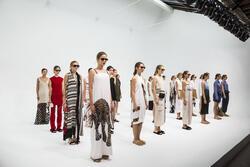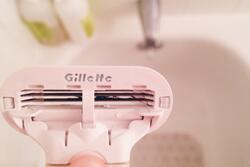Photoshop: A Tool For Body-Shaming
There probably isn’t a single woman in the United States who hasn’t been affected by the inescapable grasp of the body-shaming monsters who live inside most of our brains. They come up from behind, maybe when you’re in the mall and walk past Victoria’s Secret. You see these women who are, in essence, naked, with what look like the most beautiful bodies that have ever graced the earth. “They’re called angels for a reason, right?” you say to yourself. You start to look down at your own body and become disheartened by what you see. The monsters creep up and say, “Maybe you shouldn’t have lunch today…you had breakfast and shouldn’t be hungry anyways! Think of how happy you’ll be when you can finally squeeze into those jeans!” They come when you are vulnerable, weak, and unable to defend yourself. They wage war on your insides and they eat you alive. I have mine, but they have never put me in a place where I would harm myself or risk my health to achieve an unattainable standard. So many people I know haven’t been as lucky. The sheer amount of damage that these inner monsters cause is insurmountable. Why do they exist? What gives them the audacity to think that they can barge in and wreck lives in their wake? One word: Photoshop.
According to the National Association of Anorexia Nervosa & Associated Disorders, “The body type portrayed in advertising as the ideal is possessed naturally by only 5% of American females.” Five percent. Let that sink in for a minute. I mean, think about this in the most logical way possible. These standards are 95% unattainable. So why do they seem more attainable than they actually are? Because editors digitally manipulate pictures to make all of their models look like those 5% of women! Mainstream media outlets routinely utilize Photoshop, a photo-editing app that can transform real, healthy bodies into unrecognizable aliens that don’t resemble anything that looks like the average person. It would be one thing to remove blemishes, or maybe whiten teeth. Photoshop, though, is being used to thin waists, legs, and arms, to a degree resembling emaciation, and then to enhance breasts and butts in a way that over-sexualizes models. Photoshop and other like applications negatively affect girls as soon as they’re old enough to synthesize what TV commercials, movies, magazines, and any other media outlets are forcing down their throats.
There is not a single part of American culture that infuriates me more then the over-editing of the female body. It’s untrue, unfair, and unjust. You and I should not have to feel badly about what we see in the mirror. It’s not fair, but it’s not going away unless people try to do something about it. As a feminist, I can’t say that I disapprove of the Victoria’s Secret Angels based on their career paths. What I can say is that I disapprove of the fact that they don’t seem to fight against the harmful effects of Photoshop and false advertising. I can’t say that I haven’t purchased anything from Victoria’s Secret, but I recently decided that I would not support them anymore because of the damage they’ve done to women everywhere with their use and abuse of Photoshop.
Real life isn’t hot or not. Real life is about so much more than the body. It’s about thoughts, values, opinions, and emotions. The portrayal of women by the fashion industry has made countless women and girls feel ashamed of themselves whenever they look in the mirror. We make self-deprecating comments, we call ourselves fat, and we make ourselves feel inferior.
However, there is hope for future generations of girls. A few mainstream brands are making huge strides against Photoshopping their models. Seventeen, a magazine for teen girls, stopped Photoshopping their models back in 2012. Fourteen year old Julia Bluhm started a petition requiring the magazine to have at least one unaltered photo spread per issue. The cause went viral and gathered over 84,000 signatures. Seventeen responded by pledging to not digitally alter body sizes or face shapes of young women featured in its editorial pages. This is just one magazine, but imagine the effect if all fashion editorials followed suit. Seventeen’s decision to stop Photoshopping did not make the planet earth spontaneously combust. We’re all still here! My question is, why is Photoshop?
Photoshop causes women all over the world to hate their bodies. Why should this culture surrounding “thigh gaps,” and whole social media accounts dedicated to “thinspo” (thin inspiration) be perpetuated any longer? It is not okay. I know it, you know it, and we can only hope that the fashion industry will catch up with us someday soon.
This piece was written as part of JWA’s Rising Voices Fellowship.








this article is fantastic. i wrote a term paper on this issue and would love to share it with you. i agree with you 1000%. it is unfortunate that i know so many girls negatively affected by photoshop. thank you for posting this.